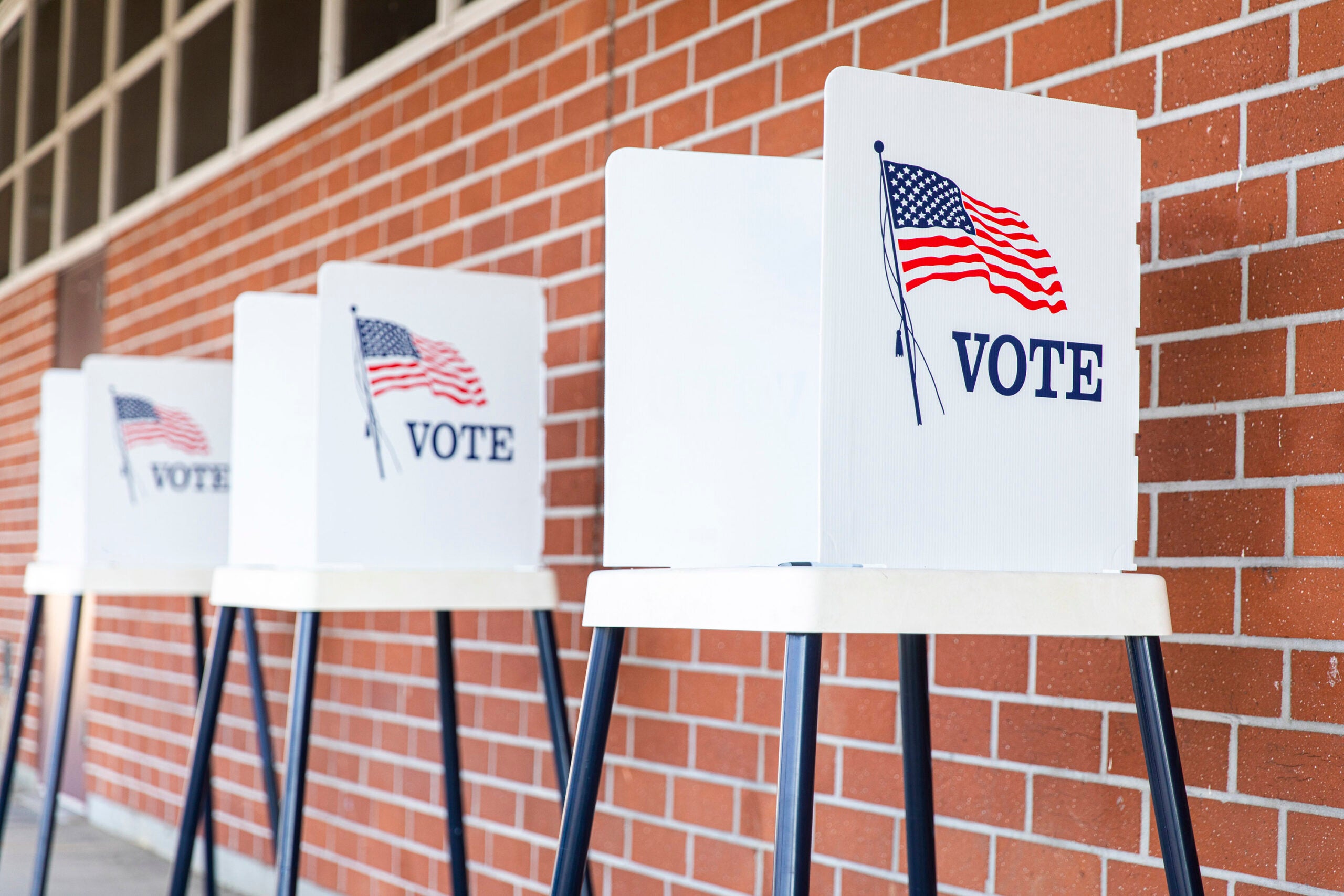Harvard Law School today announced the launch of the new Election Law Clinic. Aimed at providing law students with direct hands-on experience in litigation, legislation, administrative practice, and policymaking, the new clinic will give students the opportunity to work on a broad range of cutting-edge issues in areas such as redistricting, voting rights, campaign finance, and party regulation.
While many of the top law schools now offer courses in election law, Harvard is the first law school in the country to launch an in-house clinic designed entirely around a practice in election law. The Election Law Clinic joins the 46 legal clinics and student practice organizations that make up the school’s clinical program.
Ruth Greenwood, who joined HLS in January 2020 as a lecturer in law and launched the Voting Rights Litigation and Advocacy externship clinic, will direct the expanded in-house Election Law Clinic.
Greenwood, a prominent and highly experienced attorney and voting rights advocate, will serve as founding director of the new clinic and as Visiting Assistant Clinical Professor of Law, effective July 1, 2021.
“I am delighted that we are able to launch a new Election Law Clinic to address, and prepare our future graduates to address, an array of vital issues touching the way law structures, supports, and protects the democratic process,” said John F. Manning ’85, the Morgan and Helen Chu Dean of Harvard Law School. “With deep experience and keen insight into the field, Ruth Greenwood will skillfully teach our students to navigate complex, interesting, and highly consequential election law work that spans federal, state and local jurisdictions.”
Establishing a clinic at HLS focused on election law and leveraging all of Harvard Law School’s and Harvard University’s institutional strengths and resources, Greenwood said, will be a “force multiplier.”
“Having a premier law school start this clinic shows the critical importance of election law to legal education and the importance of bringing new lawyers into this field,” she said.
Election law cases are often highly complex and frequently involve claims under the U.S. Constitution, federal statutes, and state law provisions.
Clinical students will participate in direct representation and writing amicus briefs in federal and state cases, and will build their skills in fact discovery, legal research, briefing, oral advocacy, and policy development. They will also write briefs in significant cases in front of the Supreme Court and state and federal appellate courts.
Another important goal of the new clinic, said Greenwood, is to build stronger ties between academia and attorneys in the law of democracy, and to help students think more about the theoretical origins of election law.
By developing projects that are rooted in new academic research and novel theories of litigation by law professors and political scientists, the clinic aims to draw from the expertise across multiple disciplines at Harvard University.
Through this clinic work, in partnership with outside organizations, students will bridge new ideas from the election law academy to the election law bar.
Professor Nicholas Stephanopoulos, an expert on election law and constitutional law, will also teach and supervise students in the new clinic. Stephanopoulos teaches Election Law, a course all students enrolled in the clinic will be required to take.
Greenwood also previously served as co-director of voting rights and redistricting for the nonpartisan Campaign Legal Center in Chicago, where she developed and implemented redistricting program plans and engaged in litigation on a variety of redistricting issues. Her focus was on ending partisan gerrymandering and promoting minority representation. She also previously served as an adjunct professor of law at Loyola University Chicago School of Law.
Greenwood and Stephanopoulos litigated partisan gerrymandering cases in Wisconsin, which culminated in Gill v. Whitford, and in North Carolina, which culminated in Rucho v. Common Cause. While the cases did not ultimately succeed before the Supreme Court, the broader anti-gerrymandering project — which includes state court litigation, state constitutional amendments via ballot initiatives, and potential congressional legislation — continues a larger effort to win fair maps.
In 2016, Greenwood was a Chicago Civic Leadership Academy Fellow. She was awarded an Exceptional Service Award by the Chicago Board of Elections in 2014 for her work on Chicago Democracy Week.
